> Home
> The Film
> Interview
> Projects
> Contact
Interview with the director Horst Krassa
- - - - - - - - - - - - - - - - - - - - - - - - - - - - - - - - - - - - - - - - - - - - - - - - - - - - - - - - - - - - - - - -
The individual crystallizes
- - - - - - - - - - - - - - - - - - - - - - - - - - - - - - - - - - - - - - - - - - - - - - - - - - - - - - - - - - - - - - - -
Mr.
Krassa how did the idea to "Over Night" come up?
Film is the media, which touches, moves me the most. Actually it has always
been like that. One day I decided to make my own movies. I orientated
myself at movies that I liked, movies in which people were in the foreground.
A director who’s name I forgot once said in a TV interview: "For
a good movie you need a superior subject. And there are only two superior
subjects: Death and Love." When I heard that, I said to myself: that’s
right. And with this thought in mind I started the script and the realization
of the film.
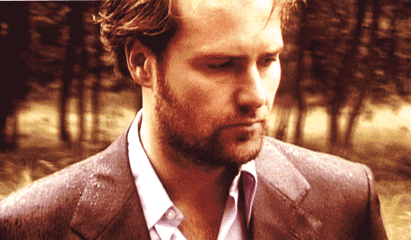
Under which criteria did you develop the action and characters of the movie?
The writing of the script went through different phases. I call the first one the "unstained" phase. The time of writing down everything that popped up. Then the "stained" phase began. I contacted teachers with methodical principals. I dealt with the process in a theoretical way. I tried it in that formal way and found out that unfortunately it’s not mine. It felt silly for example, to make up persons. It felt as if I had to know the character better than it knew itself. As if I had to stand above it, playing god. That’s when I stopped taking myself serious, nothing worked anymore. So I searched on. Then I had an idea of a character, a protagonist. A young man, not in his teens anymore, successful so it appears to the outside. The inside is burned out, a photographer, who lost the passion he once possessed on his way to success. He has money, an apartment, a car, a woman, but he’s far from his actual life dreams. I tried to get closer to the person by accompanying him through his everyday life. I followed Pavel, that’s how I called him, through different situations and watched him behave and make decisions. That’s how the action developed and that way his character unfolded step by step.
Something special crystallized itself. The Pavel figure became tangible and suddenly there was a story. But there also were three new characters whom I wanted / had to get to know as good as Pavel. So I did the same with Mathilda, Moni, and Hans, so their names, I accompanied them in the same way. The result was four stories with one main story. At the same time structure of the film developed in an in my eyes natural way.
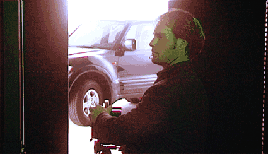
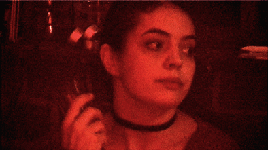
Is "Over Night" a lovestory?
Minimum one. Actually several.
Mathilda and Pavel, Pavel and his ex-girlfriend, Moni and her lovers, Mathilda and Moni, Moni Mathilda and Hans, Hans and Irma the prostitute. Those are all lovestories in different ways. Moni deals differently with her need for love compared to Mathilda. Mathilda is a young woman who doesn’t know love yet and doesn’t really wants to get know it because everything connected with it seems suspicious and frightening. In contrast to that Moni frequently goes to bed with men and enjoys it. She’s got a different way of avoiding her fears.
She doesn’t take the aspect of love seriously. Hans entrenches himself behind his club and his dubious deals. And Pavel? Theories exist saying that the persons you fall in love with are something like a mirror of yourself. Who knows? Maybe Pavel sees something of himself in Mathilda that he might have lost years ago.
The portrayed characters are all city-people in Germany. Is that the reason for the creation of the dance-club "Ostende" as the main location of the action?
Well, the characters are of different ages and are living through different situations in their lives. But surely the film takes place in spaces I know from my own life. The main location is "Ostende” . all four main characters have to do with the club, a big part of the story takes place there. The club is a public space, which admits different people to meet each other and at the same time it is a place which is mainly visited by a certain kind of people. Other people would probably be better taken care of in a park or a hospital or a library or a museum, I don’t know.
Is it a cold world, in which the film takes place?
Not explicitly cold. The world of Pavel in the beginning is emotionally superficial. But I didn’t want to make a socially educational film. I would refuse that. Probably it is the portray of a part of society in today’s big society. I assume that because the world in the film was thought out in the here and now. I leave that up to the spectator.
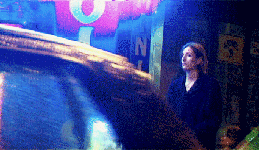
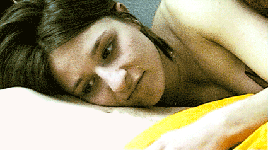
The film was filmed on video. Why did you choose that material?
Technic is only possible through ist invention. Today in comparison to the past decades, you can work with DV / mini DV-cameras. Those are small relatively easy to operate cameras, which need only little effort. The advantage is that you can work with a small team and are more flexible. And it supports our idea of letting the camera follow the actors and not the other way around. The actors can use their space better without geeing restricted through technical equipment. That way a different intimacy with the actor develops. An intimacy that is hardly achieved with alot of technical equipment.
Is it difficult to make such a movie in Germany?
Despite all difficulties I am really lucky to have had the chance to do it. First I got sponsorship for the writing of the script and only with the treatment on the table the boss of the feature movie department of the Hessische Rundfunk was spontaneously convinced of the project. Nevertheless it is difficult.